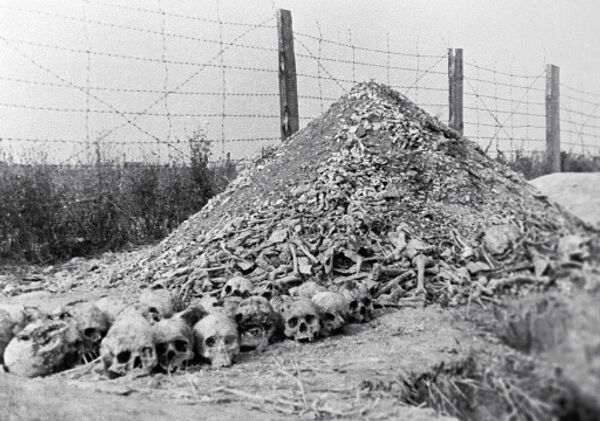An event to commemorate Holocaust victims will take place in a war-time Jewish ghetto southwest of Moscow on January 27, an international remembrance day, a Jewish charity in Russia said on Wednesday.
The ghetto in Kaluga, 190 km (120 miles) from Moscow, was the first Holocaust site in Europe liberated by Soviet troops. It was freed in December 1941 about two months after it was created by the Nazi occupiers.
For the Russian Jewish Congress, which is organizing the event, International Holocaust Remembrance Day and Victory Day "remind of the tragedy and heroism, of the importance of historical memory, the danger of nationalistic ideology and the need to counter attempts to distort history," Congress spokesman Mikhail Savin said.
He said the event will attract federal and regional officials, foreign diplomats, religious and public figures, and members of the cultural community.
"Soviet troops also liberated those who survived the Auschwitz-Birkenau death camp on January 27, 1945," Savin said, echoing Russian leaders' concerns about recent attempts, especially by some former Soviet states, to "rewrite history," diminishing the Soviet Union's role in World War II.
It will be the first Russian Holocaust remembrance event to take place outside the capital.
"We believe such events will promote true, not showy, patriotism," Savin said.
The United Nations declared January 27, when the Red Army liberated the largest Nazi death camp Auschwitz, an international day to remember victims of Nazism.
A UN resolution urges member states to honor the memory of Holocaust victims and develop education programs as part of efforts to prevent more acts of genocide. Another UN resolution rejects the denial of the Holocaust, in which 6 million European Jews were killed by the Nazi German regime.
The Kaluga ghetto comprised 150 inmates, 11 of who died as Germans set the compound on fire when fleeing the city. Another 14 Jews in the city were earlier shot by Nazis as Soviet officials. The Jews, who had been forced out of their apartments, had to clear the city of corpses and garbage every day.
Jewish schoolchildren's essays on life in the ghetto were later included in a book, "War through the eyes of children" published by the local authorities.
MOSCOW, January 20 (RIA Novosti)


